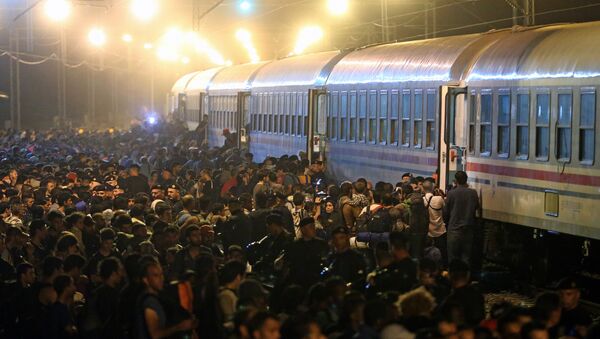MOSCOW (Sputnik) — EU leaders will convene Wednesday for an extraordinary, informal meeting to discuss an overall approach to resolving the refugee crisis both inside outside the bloc.
"I hope we will be able to address all these challenges at our special meeting next Wednesday at 6 p.m. [16:00 GMT]," European Council president Donald Tusk wrote in his letter to the EU heads of state or government.
According to the invitation letter, the European Council members will discuss both joint attempts to help the bloc in solving this problem, as well as particular responsibilities at a national level.
The summit will also focus on the European Union's assistance to the front-line member states, cooperation with countries in the Western Balkans, with Turkey as well as countries bordering conflict-torn Syria.
The settlement of the ongoing Syrian crisis will also be high on the summit's agenda.
In recent months, the European Union has faced the largest wave of refugee movement since World War II, with hundreds of thousands of people fleeing violence and poverty in North Africa and the Middle East. The crisis continues to escalate, with some EU states toughening their asylum policies and strengthening their borders.
Earlier on Tuesday, EU justice and interior ministers reached an agreement on the long-awaited plan to relocate an extra 120,000 refugees from Greece, Italy and Hungary, the countries most heavily affected by the refugee influx, among the bloc's member state..
The decision brings the total number of refugees to be relocated across the European Union to 160,000 people as an emergency relocation plan of 40,000 refugees was agreed earlier.


